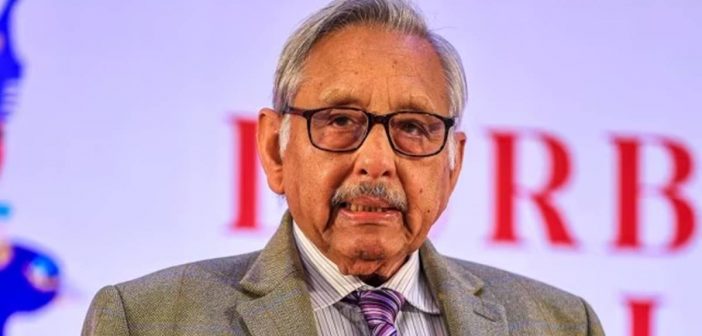In the intricate tapestry of South Asian geopolitics, the relationship between India and Pakistan is one of the most contentious threads. Tangled in a history of partition, conflict, and diplomatic skirmishes, the two nations often find themselves at odds. Recent years, however, have seen occasional glimpses of thawing tensions and diplomatic overtures. Yet, against this backdrop, a concerning trend has emerged – the glorification of Pakistan by Indian leaders.
In the past decade, there have been instances where Indian leaders, be it politicians, public figures, or celebrities, have made remarks that seemed to celebrate or praise Pakistan, its culture, or its leadership. These remarks, often made in moments of diplomatic gestures or attempts at peace talks, have triggered a polarizing discourse within India. While some see them as pragmatic steps towards fostering better relations, others view them as acts of betrayal or appeasement.
One of the most notable recent incidents occurred during a televised interview where a prominent Indian political leader praised Pakistan’s handling of a regional crisis. The leader’s remarks, though intended to acknowledge positive steps taken by Pakistan, were met with fierce criticism from hardline factions within India. Accusations of capitulation and naivety echoed across social media platforms and news channels, highlighting the sensitivity of any perceived praise towards Pakistan.
To understand the implications of such remarks, it’s essential to delve into the historical animosity between the two nations. Born out of the partition of British India in 1947, India and Pakistan have since engaged in multiple wars, border skirmishes, and proxy conflicts. The Kashmir issue, in particular, remains a perennial source of tension, with both nations claiming the region in its entirety. Against this backdrop of conflict, any positive portrayal of Pakistan by Indian leaders is seen as a departure from the status quo, inviting intense scrutiny and debate.
Critics of the glorification of Pakistan argue that it undermines the sacrifices made by Indian soldiers and civilians in conflicts with Pakistan. They assert that such remarks gloss over Pakistan’s alleged support for terrorist activities in the region and its failure to curb extremism effectively. From this perspective, praising Pakistan, even in the context of diplomatic engagement, is seen as a betrayal of national interests and a disregard for the sentiments of those affected by cross-border hostilities.
However, proponents of a more conciliatory approach argue that vilifying Pakistan perpetuates a cycle of hostility and distrust that hampers progress towards peace and stability in the region. They advocate for dialogue, cooperation, and mutual understanding as the only viable means to address longstanding grievances and move towards a lasting resolution. From this standpoint, acknowledging positive developments in Pakistan, however incremental, can serve as a confidence-building measure and pave the way for meaningful engagement.
The debate over glorifying Pakistan is not confined to political circles but permeates various facets of Indian society, including popular culture. Bollywood, India’s prolific film industry, has often been a battleground for narratives surrounding India-Pakistan relations. In recent years, several Bollywood films have depicted themes of cross-border friendship, love, and reconciliation, drawing both acclaim and criticism. While some hail these films as bold attempts to humanize the ‘other,’ others decry them as attempts to whitewash historical grievances for commercial gain.
Moreover, the role of social media in shaping public opinion on this issue cannot be overstated. Platforms like Twitter, Facebook, and YouTube serve as virtual battlegrounds where competing narratives vie for dominance. Hashtags like #IndiaWithPakistan or #BoycottPakistaniProducts trend intermittently, reflecting the polarized nature of public discourse. In this digital arena, every remark by an Indian leader, no matter how nuanced, is dissected, analyzed, and amplified, often exacerbating divisions rather than fostering understanding.
In the broader context of geopolitics, the glorification of Pakistan by Indian leaders also has implications for India’s relationships with other countries, particularly its allies. India’s strategic partnerships with nations like the United States, Israel, and Russia are carefully calibrated to balance its interests in the region. Any perceived deviation from the official stance on Pakistan risks complicating these relationships and could undermine India’s diplomatic credibility on the world stage.
Looking ahead, the question of how Indian leaders navigate the delicate terrain of India-Pakistan relations remains paramount. While the specter of conflict looms large, there are also opportunities for rapprochement and cooperation. Finding the right balance between assertiveness and pragmatism is key to charting a course towards peace and stability in the region.
In conclusion, recent remarks by Indian leaders glorifying Pakistan underscore the complexities of India-Pakistan relations and the divergent perspectives within Indian society. While some view such remarks as gestures of goodwill aimed at fostering dialogue, others see them as betrayals of national interests. Navigating this minefield requires a nuanced understanding of history, geopolitics, and public sentiment. Ultimately, the path to lasting peace in the region lies in dialogue, cooperation, and mutual respect, transcending the rhetoric of glorification or vilification.





